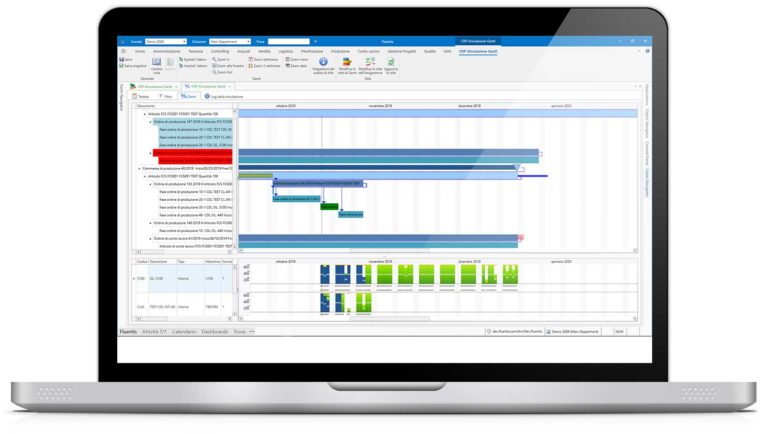The Master Scheduling algorithm is the production scheduler that deals with select orders and analyzes their “production feasibility” according to its structural composition, defined precisely by the bill of materials and the processing cycles assigned to it. The result of this processing will give rise to the issuance of “Planned” documents, such as Planned Production Orders, Planned Work Orders and Planned Purchase Orders. The release of these documents will result in actual Production Orders, Work Orders and Purchase Requests, respectively, in the context of the Purchasing area. Production scheduling can take place with “At the earliest” analysis logic, rather than “At the latest”, depending on the organization’s desired settings and strategies.





